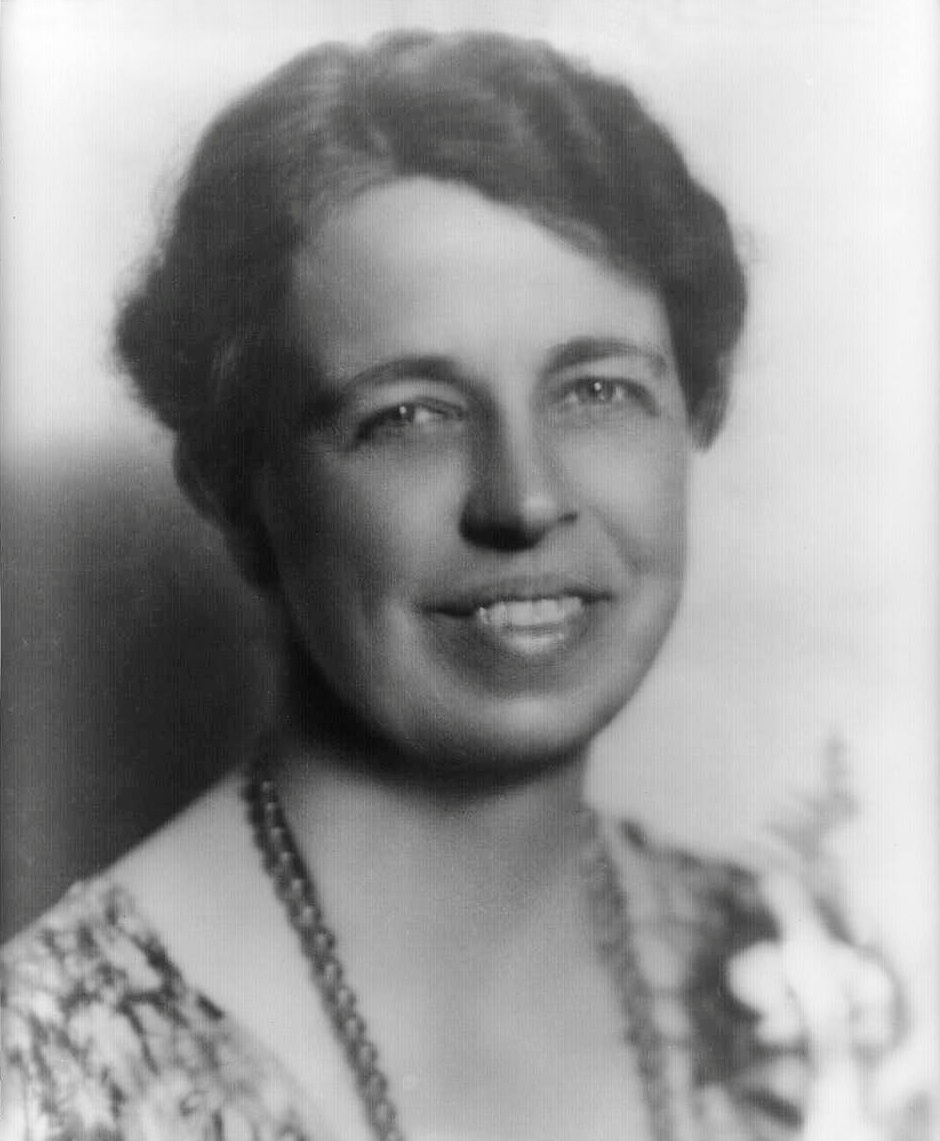Anna Eleanor Roosevelt foi primeira-dama dos Estados Unidos de 1933 a 1945.
Apoiou a política do New Deal, criada por seu marido e primo de quinto grau, o presidente Franklin Delano Roosevelt, e tornou-se grande defensora dos direitos humanos. Após a morte do marido, em 1945, Roosevelt continuou a ser uma defensora, porta-voz, ativista internacional para a coalizão do New Deal. Trabalhou para melhorar a situação das mulheres trabalhadoras, embora tenha sido contra a política dos direitos iguais, pois acreditava que ela afetaria negativamente as mulheres.
Nos anos 1940, Eleanor foi uma das co-fundadoras da França Freedom House e apoiou a criação da Organização das Nações Unidas . Em 1943, Roosevelt criou a United Nations Association of the United States of America para dar suporte a criação da ONU. Foi diplomata e embaixadora dos Estados Unidos na Organização das Nações Unidas entre 1945 e 1952, por nomeação do presidente Harry Truman. Durante o seu tempo na ONU presidiu a comissão que elaborou e aprovou a Declaração Universal dos Direitos Humanos. O presidente Truman apelidou-a de "Primeira-dama do Mundo" em homenagem a suas conquistas referentes aos direitos humanos.Uma figura ativa na política durante toda a sua vida, Eleanor Roosevelt presidiu a comissão da inovadora administração de John F. Kennedy que deu início a segunda onda do feminismo, a Comissão Presidencial sobre o Status da Mulher. Seu tio, Theodore Roosevelt, foi duas vezes presidente dos Estados Unidos. Eleanor Roosevelt tinha ancestrais neerlandeses.
Wikipedia
✵
11. Outubro 1884 – 7. Novembro 1962
•
Outros nomes
Eleanor Rooseveltová,
Eleanor Anna Roosevelt,
Анна Элеонора Рузвельт
